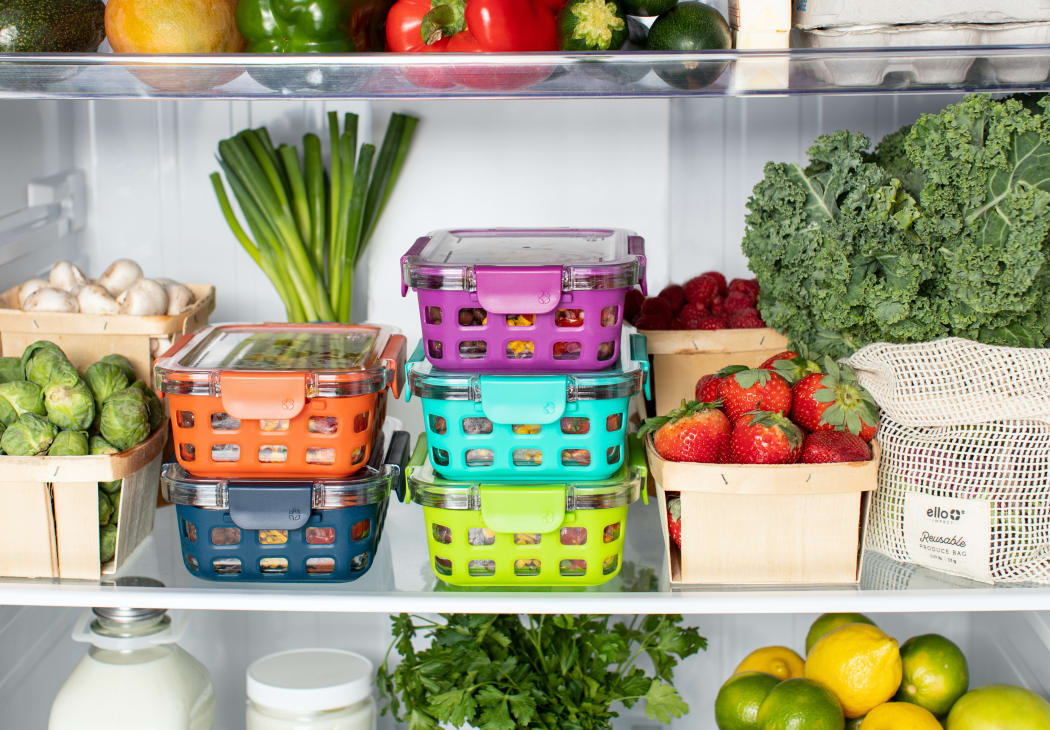You might want to think twice before discarding milk, or other products, just because the suggested best before date has elapsed, says cookbook author Allyson Gofton.
The former Food in a Minute host looks at different ways to salvage foods that are nearing an end, and she offers up a recipe for Irish soda bread using that milk you were going to throw out.

Photo: Ello/Unsplash
Gofton tells Jim Mora 'best before' dates have created some confusion with 'expiry' or 'use by' dates.
"Best before indicates when a product will be of best flavour and quality, it is not a purchase or a safety date."
Leaving milk out at room temperature will make it age faster because microbes love warm environments, she says.
"So what we've got to do is learn the sniff test really, I would imagine you can get away with it for an extra three to four days [from the best before date, if you store it well] before your milk begins to - what we would say once - turn."
Dairy foods are susceptible to mould because they have sugar, which is a food for mould, she says.
"So generally, this is very general, green, blue and white moulds on your cheeses, if you don't like it just cut them off and discard that piece.
"However, if your brie cheese has become pink, red, or orange, maybe even dark black with mould, that's when you throw it out [completely]."
You should also be careful of mould that can come from cross contamination, she says, like storing blue cheese close to another cheese or poor hygiene in the kitchen.
Gofton recommends storing fruits and vegetables that give off a gas called ethylene - like apples, tomatoes, mangoes, onions - separately, otherwise it can hasten ripening.

Allyson Gofton Photo: supplied
As for berries, you should wait to wash them until right before you eat them, she says.
"They absorb water and the more moist our food is, the faster it is to decompose. So they will soak that water up if you wash them."
One way to preserve vegetables is to blanche and freeze them, even freezing things like mash potatoes, she says.
Nuts should also be kept in the freezer when the temperatures rise because they're high in oil and will rancidify quickly, she says.
"They're very low in moisture content and so you can pop them into the freezer, take them in and out without any deterioration in the quality of the nuts."
As for meats, fish fillets age very quickly - every hour you leave it out is equivalent to a whole day, she says.
"Ideally you buy fish for the day you're going to eat it.
"If by chance you don't eat it on that night, the next day what you do is you pop the fillets into water that contains a little lemon juice or vinegar with lots of ice and give it 30 minutes to refresh itself, pat it dry and go on and cook it."
Once a packet of processed meat is opened, Gofton cautions it shouldn't be left in the same packaging because of microbes.
"If you're buying your meat from the supermarket and it comes in a plastic box or in a polystyrene tray, leave it in that until you go use it.
"For processed foods what I tend to do is wrap them in greaseproof or baking paper and pop them into a sealed or sealable container that's lined with paper towel and they will keep lovely and fresh."
The same goes for ham and bacon, she says.
"What I do is I freeze my bacon slices individually, lay them on a tray, pop them in a freezer then you can put the frozen slices into a plastic bag and pop them in the freezer and take them out one by one.
"We tend to buy ham pre-packaged in plastic packs, you should use that within a few days of opening it.
"If it goes a little, and I do say just a little, slimy what you can do is get a paper towel with a little squeeze of lemon juice or vinegar on that and a little water and just wipe that off and it's lovely and fresh again."
If it gets to the point where the meat is green, slimy and sour, it should definitely be thrown out, she says.

